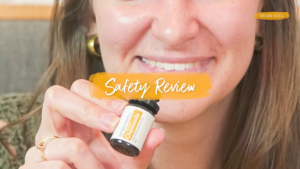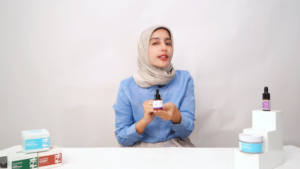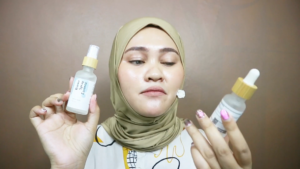In the last few years, there has been a demand upsurge for organic skincare products as consumers have grown more aware of what they apply to their skin. However, this rise has also seen an increase in greenwashing where companies falsely claim to sell organic and eco-friendly products with the aim of attracting eco-sensitive purchasers. It is critical to learn how to recognize genuine products and avoid being misled by greenwashers if you want to invest in truly organic skincare.
What is Greenwashing?
Greenwashing is a marketing trend that misrepresents the environmental benefits of different brands. This can range from using vague terms like “natural” and “eco-friendly” without substantiating these claims to creating packaging that suggests a product is more environmentally responsible than it truly is. This leads to confusion among customers who are unable to distinguish which among them are genuinely organic.
Key Indicators of Truly Organic Skincare Products
1. Certified Organic Labels
The best way to identify whether a skincare product is organic or not is through checking certification from reputable organizations. Certified Organic labels such as USDA Organic, COSMOS ORGANIC, and ECOCERT ensure that only strict and high standards are met in these products. Such certifications mean the ingredients used do not contain synthetic chemicals, pesticides, GMOs, etc.
2. Ingredient List Transparency
Real natural skincare products will always have an ingredient list that is clear and comprehensive. Check for those that list all ingredients by their scientific names rather than those whose lists include general words such as perfume or fragrance since these might hide some harmful chemicals out of sight. A shorter, simple ingredient list often serves as a good indication that it is an organic product.
3. Understanding Ingredient Sources
Not every natural ingredient means it’s organic; for any product labeled as being organic, its ingredients should be grown without synthetic pesticides fertilizers or genetically modified organisms (GMOs). Ingredients like Aloe Vera, Shea Butter and Essential Oils must come from certified farms.
4. Packaging Claims
Be wary of buzzwords such as “natural,” “green,” and “eco-friendly” on packaging because there are no standards governing their use and they can be employed liberally by marketers. Instead, look for specific claims backed by certifications or clear explanations of sustainability practices.
5. Brand Transparency and Ethics
Brands that are truly organic usually have transparency in their sourcing, manufacturing processes and environmental impact. It is common to find such companies that provide details about their ethical standards, sustainability efforts, and certifications they possess. You should be skeptical of enterprises that do not reveal this information or make vague statements.
Common Greenwashing Tactics to Watch Out For
1. Misleading Labels and Imagery
Some packaging has green colors or leaf images on it and it makes one think that the product is organic while not. Do not just judge a book by its cover as you need to consider the ingredient list as well as the certification.
2. Vague Terminology
These terms are misleading whenever used in describing products because they are unregulated and may encompass limited natural ingredients mixed with synthetic chemicals. Genuine organic products will specify the percentage of organic ingredients used and provide certifications.
3. Selective Ingredient Highlighting
Some brands highlight a few organic ingredients on the front of the packaging while the majority of them are synthetic. Please remember to read through all ingredients so that you will know what else is contained in this product.
4. False Certifications
Be wary of fake certifications that simulate genuine ones. If you are unsure, search for such reputable certifying bodies’ logos on the certifier’s website and affirm their genuineness.
Ways to Ensure That You Buy Organic Skin Care Products
- Research and Education
Find out about common organic ingredients as well as synthetic alternatives. Get yourself acquainted with approved certification emblems and what they mean. Knowledge is the best defense against greenwashing.
- Read Reviews and Do Background Checks
Seek reviews from other consumers and also check the reputation of the brand. Brand authenticity as well as product effectiveness can be learned from reliable sources and reviews.
- Contact the Manufacturer
If you are in doubt feel free to contact the company itself instead of wasting time. A legitimate organization will have no problem answering your questions or giving detailed information regarding its products and practices.
- Support Transparent Brands
Support brands that disclose details about their ingredients, sourcing processes, and manufacturing facilities. Truly organic companies usually reveal everything concerning their products.
Conclusion
Navigating through the world of organic skincare can be difficult, especially with numerous cases of greenwashing occurring daily. By identifying key indicators of truly natural products, recognizing typical greenwashing techniques, and taking steps towards acquiring additional knowledge that helps verify claims made by producers one can make better choices for themselves and for their skincare routine in general which will benefit both them as well as the environment at large. Always prioritize transparency, certification, and ingredient integrity to ensure that you are investing in skincare that is genuinely organic and completely free from harmful chemicals.








